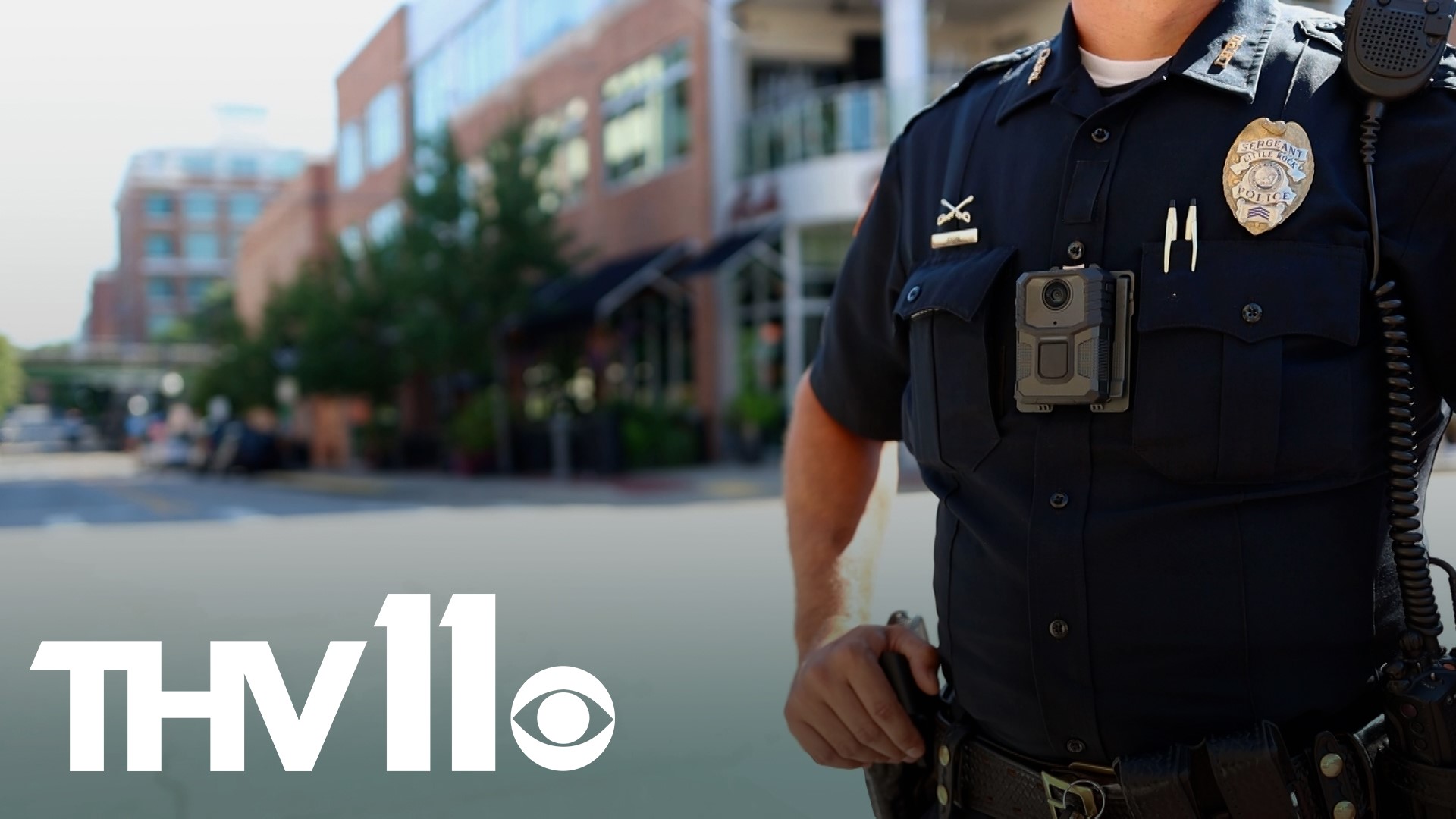LITTLE ROCK, Ark. — The city board approved the purchase of body cameras for the Little Rock Police Department in June 2020, during local and national protests over George Floyd's death.
It's a tool that not only holds police officers accountable but also everyone else in the community.
Now that the cameras are used daily, we wanted to see the impact they've made on the department and the community.
It's what some officers describe as a security blanket, according to Officer Eric Barnes.
"It holds everyone to a higher standard, not just to the police, but to everyone," he said.
With just a tap of a button, the body cameras have captured some of the most dangerous parts of the job to the most impactful.
The Little Rock City Board approved the over $750 thousand project in June 2020.
By October, every officer from patrol to school resource to community-oriented had one to strap to their uniform, according to Barnes.
"Really, any officer that their function is interacting with the public or responding to calls, they're going to have a body camera," he said.
For patrol officers, as soon as those blue lights turn on, the body camera kicks on, as well.
Barnes said it even captures video of what took place 45 seconds before the sirens went off.
"For instance, if we needed to go to court, we could pull that video and look at and say, 'this is the violation here,'" he said.
For those officers traveling on foot, they make the choice of when to hit that "on" switch.
Barnes said they're trained to do it any time it feels necessary.
"Obviously if it's something that's going to be a police action or police service or they have been requested to help, yes, they need to turn that body camera on," he said.
In the past nine months, the new tools have already changed the way they teach new officers.
The department uses scenario-based training while the new recruits have body cameras strapped on and turned on, according to Barnes.
The technology isn't only helping with new officer training, LRPD's spokesperson Mark Edwards said, it's played a major impact on the department as a whole.
"We become better officers because we can actually look at those video recordings, know what we did wrong, know what we should have done and how we should've reacted in certain situations," he said.
Once the video is saved it stays in the system for 60 days, unless it gets flagged for investigative purposes.
According to Edwards, the videos have helped everyone from detectives to supervisors. Even the amount of complaints that come in about officers have gone down.
"People realize now that we got video. Not just video of the officer and the actions that the officers took, but video of everyone on the scene," he said.
It's technology the department believes is necessary to not only hold their officers accountable, but Edwards said to also show the community a different side of the men behind the badge.
"It's always good to show the human side of police officers because it is a tough line of work, so when you see the human side. Saving an owl, saving a man's life from jumping. Those are the things that you want to be able to capture and show people what you do," he said.

